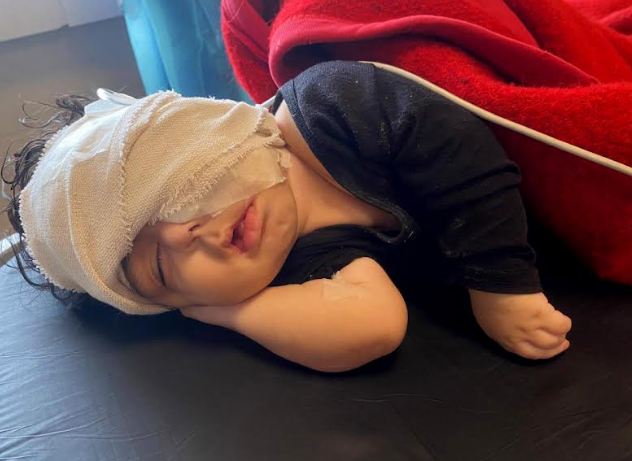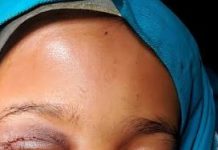ISLAMABAD, JUN 10 /DNA/ – Al-Shifa Trust Eye Hospital’s medical team has successfully operated on a rare and complicated eye tumour in 7-month-old Hadia Sadat from Kabul, Afghanistan.
Following Hadia’s refusal by hospitals in Kabul, Lahore, and Peshawar due to her severe condition, Al-Shifa Trust’s medical professionals took on the responsibility of treating her.
The treatment presented a significant challenge due to the eye tumour, which weighed 400 grams and measured 10 by 16 inches.
Despite the high risks, an expert team of oculoplastic surgeons and paediatric anaesthetists, including Dr. Murtaza, Dr. Zahra, Dr. Huda, Col. Dr. Mansoor-ul-Haq, and Dr. Ali Raza, performed the complex surgery with success.
“The complexity and risk associated with this surgery required unparalleled expertise and a high level of dedication,” said Maj Gen (R) Rehmat Khan, President of Al-Shifa Trust.
He continued by saying, “I am extremely pleased with our medical team, whose commitment and expertise have been instrumental in saving Hadia’s life.”
According to Maj Gen (R), Rehmat Khan Hadia is making headway in her recovery at the Al-Shifa Trust. She will make a full recovery and go through rehabilitation in order to acquire a prosthetic eye to restore her appearance for aesthetic purposes.
He stated that Al-Shifa Trust provides specialised oculoplastic consultations to approximately 7,000 patients and conducts over 1,500 reconstructive and tumour surgeries annually, making it the leading hospital in Pakistan.
The Oculoplastic Department takes pride in being one of the best treatment centres for birth defects of the eye, trauma reconstruction, cosmetic eye and facial rehabilitation, and all types of cancers and tumours of the eye, he explained.
Individuals who have lost an eye as a result of an injury or sickness may want to consider getting a prosthetic eye in order to improve their looks. It is not uncommon for people to refer to it as a “glass eye,” which is a shell that covers the structures in the eye socket rather than a genuine eye.
Surgery to remove an eye due to damage or disease almost always results in the attending physician’s recommendation for implanting a prosthetic eye. This implant helps to ensure that the eyelids operate properly.
In spite of the fact that most of the operations to remove an eye are not very complicated, the process of losing an eye and adjusting to life with a prosthetic eye can be quite difficult for certain individuals, both psychologically and emotionally, which requires support and counselling.

















